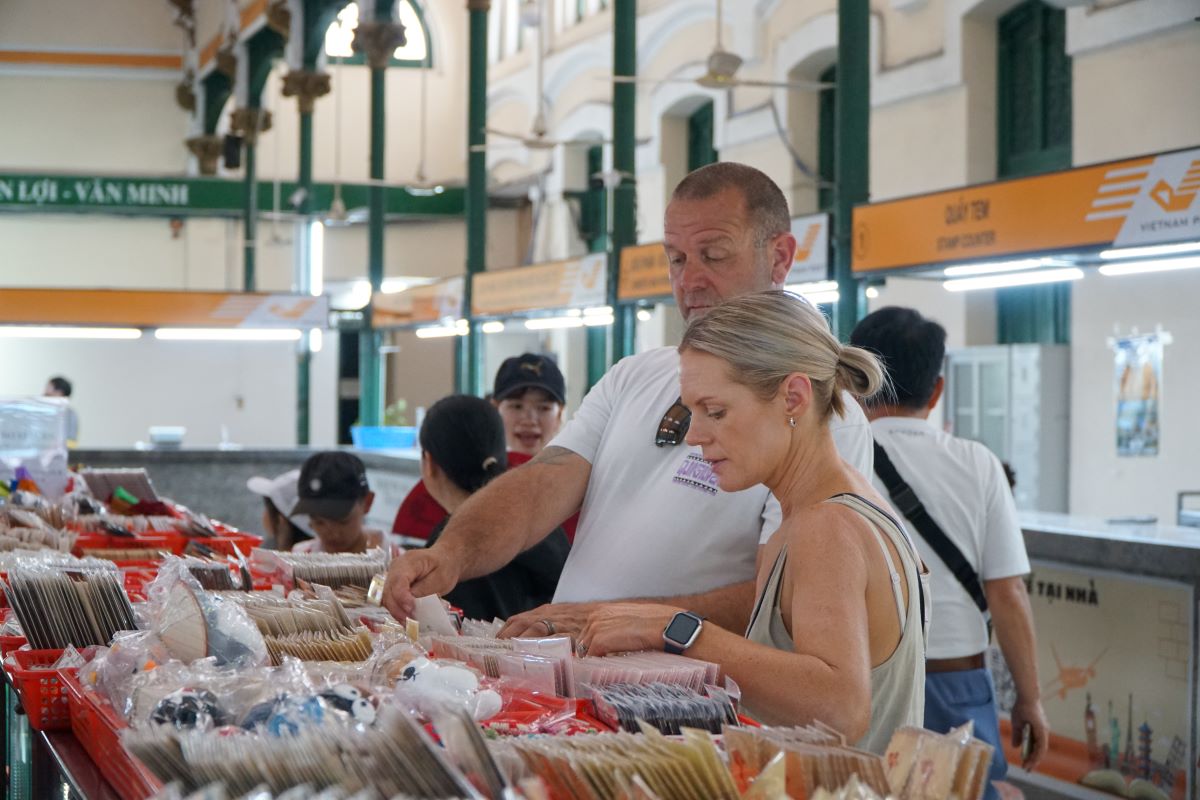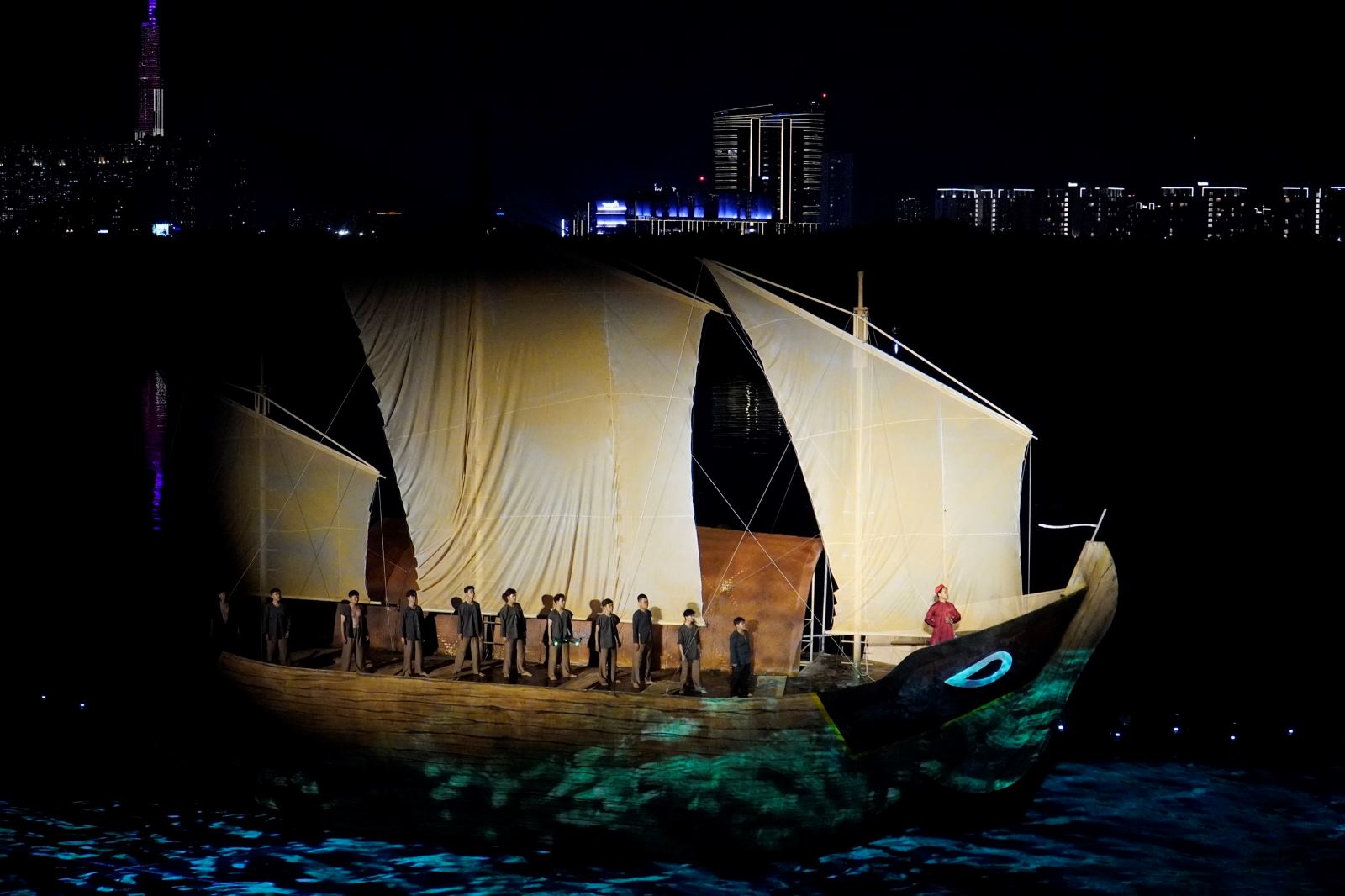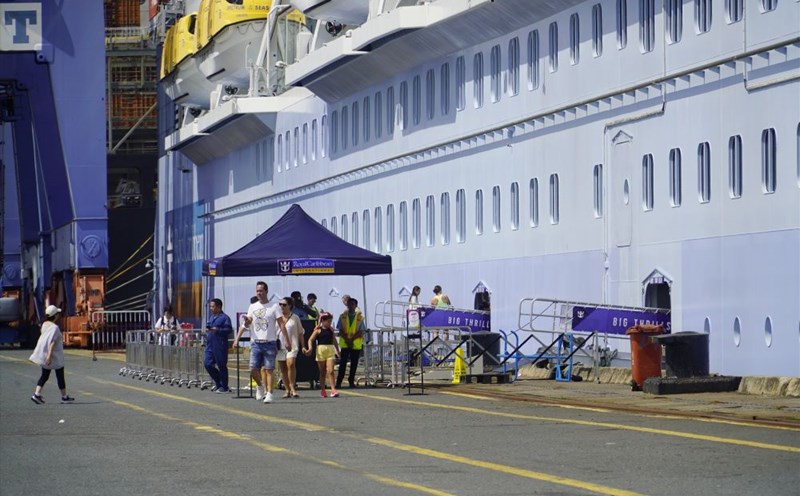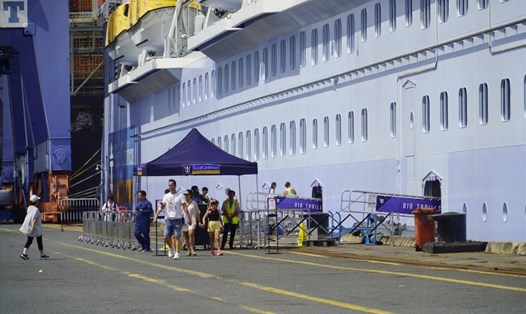Lao Dong recorded that on weekends at destinations such as Ho Chi Minh City Post Office, Dinh Doc Lap, Ben Thanh Market, the number of international visitors was quite large, including group and individual visitors. Many tourists also choose to experience typical products of the city such as river buses and double-decker buses.
Mr. John - a tourist from the UK shared: "I really like river bus and double-decker bus tours, which are both convenient and allow me to see the city from many different angles. These experiences are truly memorable".
Currently, Ho Chi Minh City has many diverse products to enhance the international tourist experience, from culinary tourism, river tourism to night tourism. At the end of the year, the tourism industry continues to promote unique products, enhance regional linkages and promote in key markets.

Notably, the 3rd Ho Chi Minh City River Festival took place from November 29 to December 31 at many locations in the city, bringing a series of activities imbued with the identity of rivers with a large-scale opening art program, fireworks, carnival parade, multi-sensory boat launch space and street performances. The festival is a highlight highlighting the city's unique tourism products after the merger, promising to attract a large number of international visitors.
According to Mr. Nguyen Khoa Luan - Director of Viet Hop on - Hop off Vietnam Tourism Company, Ho Chi Minh City is always at the forefront of the country in developing new and innovative tourism products, contributing to enriching the urban tourism ecosystem and enhancing the experience for tourists.

According to statistics from the Ho Chi Minh City Department of Tourism, in the first 10 months of 2025, the city is estimated to welcome 6.58 million international visitors. The Ho Chi Minh City tourism industry aims to strive to welcome 10 million international visitors, 50 million domestic visitors and achieve a total revenue of VND 290,000 billion in 2025.
Ms. Bui Thi Ngoc Hieu - Deputy Director of the Ho Chi Minh City Department of Tourism said that after expanding administrative boundaries, Ho Chi Minh City currently owns 681 tourism resources, stretching from vibrant urban space, traditional craft villages, to riverside and island areas.
The system of architectural heritage, museums, traditional markets, street food and unique festivals creates a unique identity, which is the foundation for diversifying products and enhancing the experience of international tourists.







